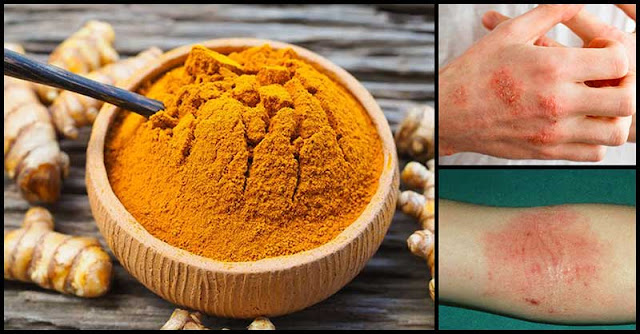Eczema is the name for a group of skin conditions that cause red, itchy, inflamed skin. Some people have been using creams, natural products, and dietary and lifestyle changes to manage or prevent eczema flares.
Since eczema is an inflammatory skin condition, a compound that can help lower inflammation would be beneficial for easing redness and irritation. Also, those substances with antimicrobial properties may also help stop the growth of skin bacteria or fungi in people suffering from this problem.
Though there’s no cure for eczema, we can manage this skin condition with the help of turmeric.
Turmeric is a golden yellow spice that has powerful anti-inflammatory, antimicrobial and free-radical-fighting properties, thus making it an appealing treatment for a variety of skin conditions. Its curcumin content is the reason behind its numerous medicinal uses.
According to Herbal Medicine: Biomolecular and Clinical Aspects, turmeric has been used by many in treating arthritis, indigestion and excessive gas. At present, some people who are suffering from various inflammatory skin conditions like eczema, are turning on the topical application of this superfood to manage their symptoms.
The use of turmeric is a great way to help heal the sore, red, itchy patches in the body. Its curcumin works by decreasing inflammation and oxidation which heals wound more quickly. Its inflammatory effect is important when it comes to eczema because all of that scratching can lead to seriously inflamed skin.
Also, the red patches that one can get all over the skin are one of the biggest side effects of eczema. Turmeric can help heal, calm, and cool the skin thus reducing redness. Simply mix turmeric and honey and apply it on the skin.
Turmeric can also speed up the process of removing dead skin cells to reveal new, healthy skin and protect the skin cells from further damage. This means that with topical application, one may just see fewer dry patches from eczema.
Ways Of Using Turmeric For Eczema
Milk And Turmeric For Eczema
Mix 1 teaspoon turmeric and 2 teaspoons coconut oil to create a paste. Apply it on the dry skin and leave on for 10 minutes before rinsing thoroughly using lukewarm water.
Do this at least once or twice a week for softer, more hydrated skin.
Coconut oil will help fight off any infection in the eczema patches and its fatty acids will work with the turmeric to help rehydrate the skin.
Turmeric Paste For Eczema And Itching
Make a paste by mixing 1 tablespoon turmeric powder and 1 tablespoon of grounded neem leaves paste. Apply it on the affected area. Both turmeric and neem leaves have anti-bacterial properties that help relieve rashes.
A Piece Of Advice
For people living with eczema, it’s important to avoid anything that may irritate or dry the skin and cause a flare, including:
- Soaps with dyes
- Pollen
- Wool clothing
- Tight clothing
- Perfumed soap or body wash
- Animal dander
- Perfumed detergents
- There are also common foods that are linked to eczema, such as
- Milk
- Wheat
- Peanuts
- Eggs
- Soy









